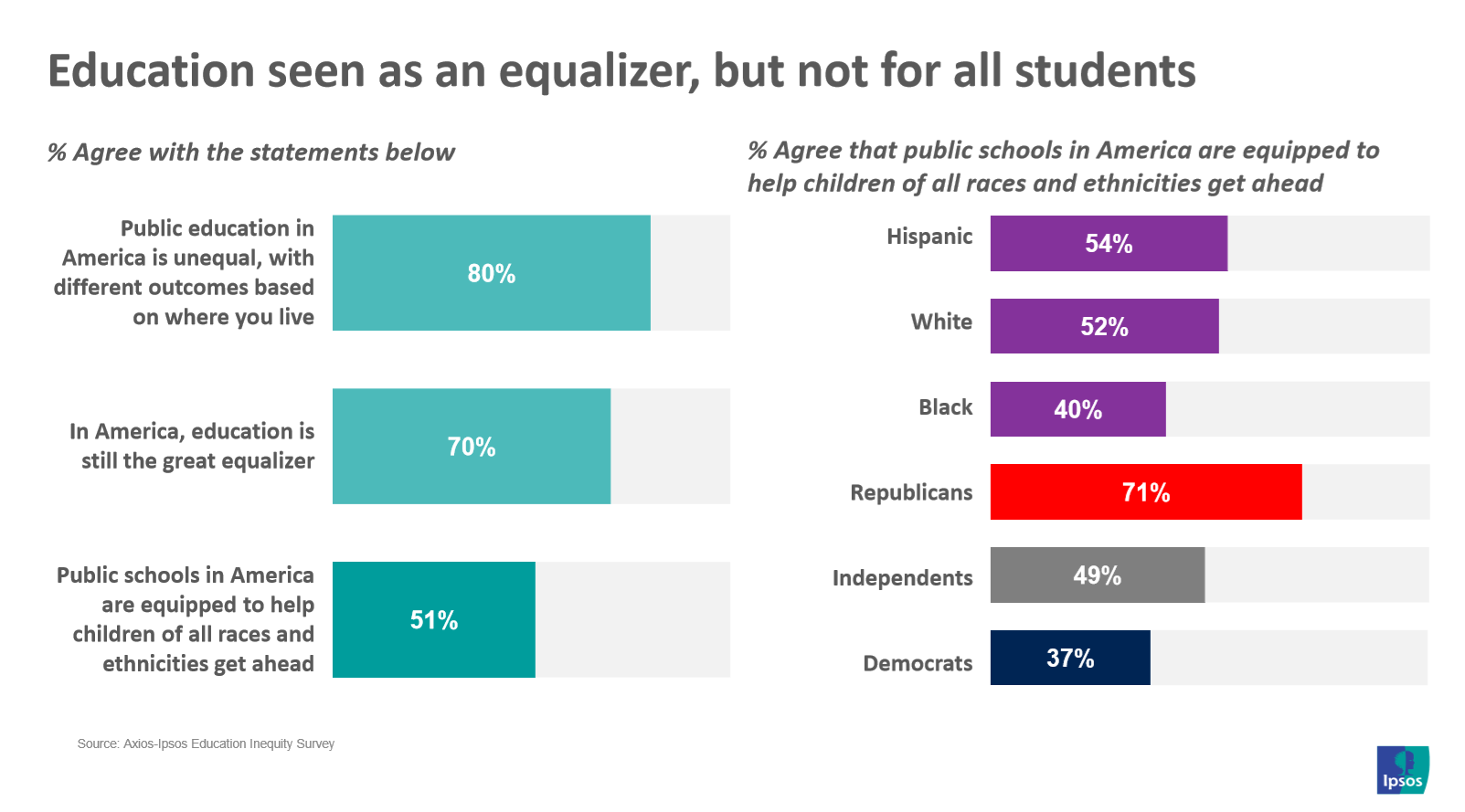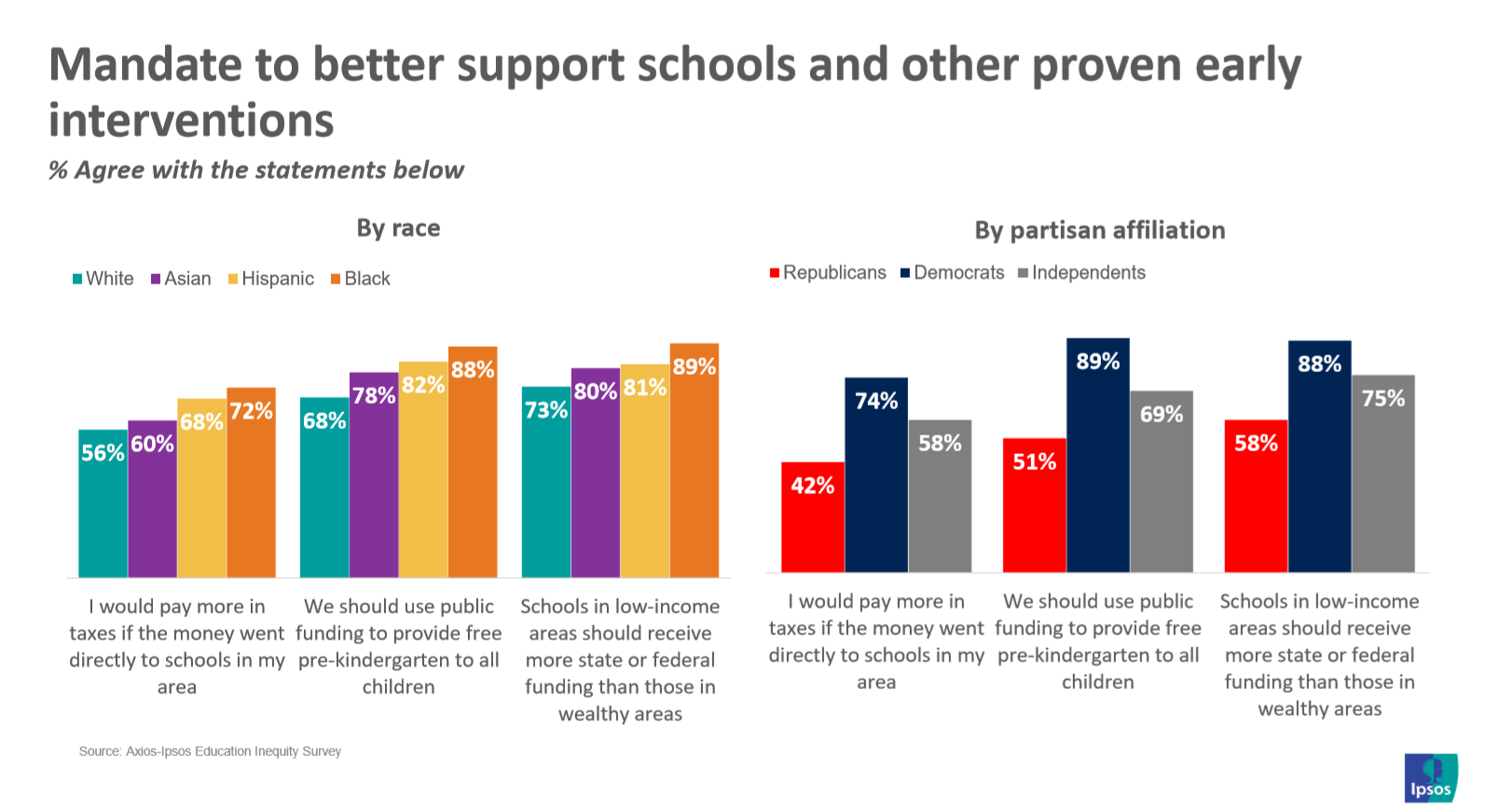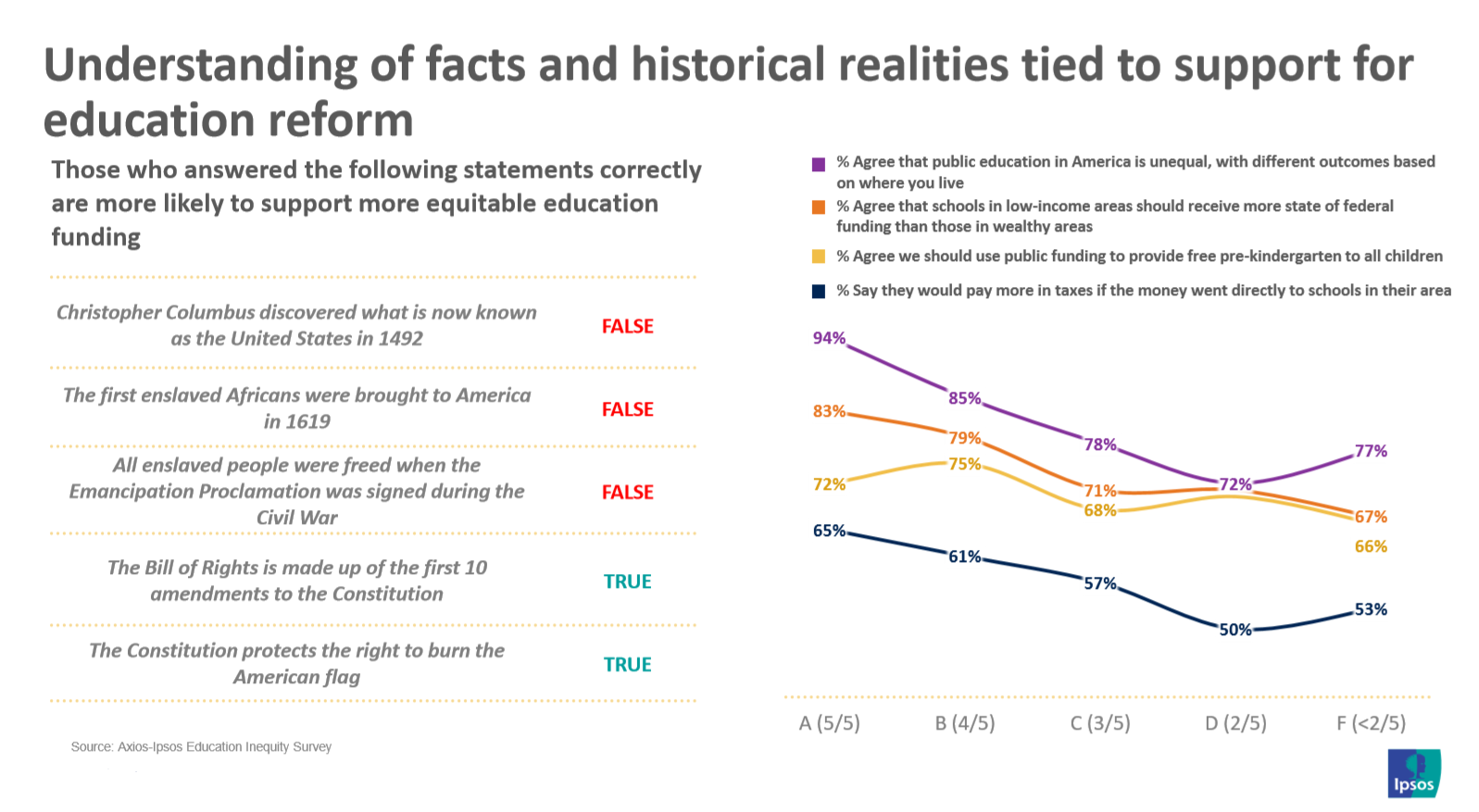Many Americans support initiatives to dismantle educational inequality
What you need to know:
- Americans still see education as a path to more opportunity, but a vast majority recognize that inequities based on race and class persist.
- Recognizing the barriers some students face, a majority of Americans support measures that would reallocate state and federal funding to low-income schools; free, universal pre-kindergarten; and paying more in taxes if the money went directly to local schools.
- While views on education reform diverge across partisan and racial lines, how well Americans understand certain historical realities also play a role in determining how much Americans support systemic change.
Deep dive:
One of America’s more enduring myths is that of education as the great equalizer – that by dint of hard work and dedicated study, the most talented are guaranteed to rise to the top and achieve their version of the American dream.
Many Americans, irrespective of their race or political affiliation, still believe this is true. But at the same time, even more believe that where you grow up is determinative of how you will do in school, according to a recent Axios-Ipsos survey on inequality in K-12 education. These two concepts, seemingly at odds, reflect the public’s awareness of the nuanced realities underpinning inequalities in the U.S. education system.
Americans are more starkly divided around the issue of how effective public schools are at helping students of color succeed. Overall, half believe that public schools have the tools they need to help all children get a head start in life, yet this varies greatly by partisan affiliation and along racial and ethnic lines.

In reality, educational outcomes and opportunities in the United States are not equal. In part, this stems from the fact that public schools’ resources are often directly dependent on how wealthy the surrounding zip code is. That is because the bulk of public school funding is derived from state and local sources, with property taxes often a key driver of money for schools.
As a result of this patchwork approach to school funding, the amount that each state and district has to spend on education varies greatly – and as a consequence, so does the quality of education.
Within this decentralized system, many students are graduating from high school without having gained proficiency in certain core skills, like reading and math. As the recently released 2020 Nation’s Report Card found, 40% of graduating high school seniors are “below basic” in math and 30% are “below basic” in reading. Predictably, achievement and opportunity gaps are particularly stark by family income, a divide that is further exacerbated when it intersects with race and ethnicity.
But there is broad appetite for change, with majority bipartisan support (74%) for channeling more state and federal dollars to low-income areas. Many Americans (70%) also support free, universal pre-kindergarten. As numerous studies show, early education has a significant, lingering effect on a host of other life outcomes – from later educational attainment to lifetime earnings.
There is even significant support (57%) for paying more in taxes if the money were to go directly to local schools, but this is primarily driven by Democrats, and Black and Hispanic respondents.

Party identity is not the only lens through which Americans view these issues. An understanding of the historical context surrounding systemic inequality, freedom of expression and our system of governance is another.
In the Axios-Ipsos survey on educational inequality, respondents were asked a series of true/false statements on topics like Christopher Columbus’ first journey across the Atlantic in 1492 and the arrival of enslaved Africans in the Americas. Those who answered more statements correctly were more likely to support reallocation of state and federal funding to lower-income areas, public funding for pre-kindergarten, and paying more in taxes if the money were to directly support local schools. They also were significantly more likely to agree that public education is unequal.

In the eyes of many Americans, education still holds the promise of driving social mobility and success. But there is an equal, and perhaps stronger, recognition that the system is leaving many students behind, particularly those from lower-income areas and communities of color. While the reality of systemic inequality might be bleak, Americans are not content with the status quo. There is broad support for systemic change to help improve outcomes for students with the greatest need.


